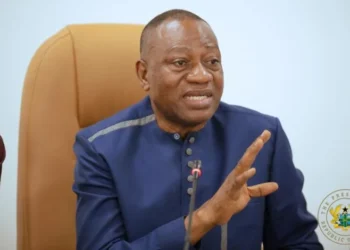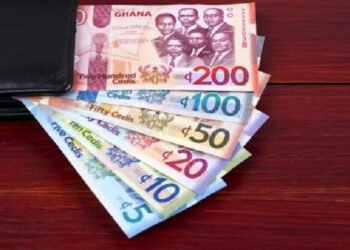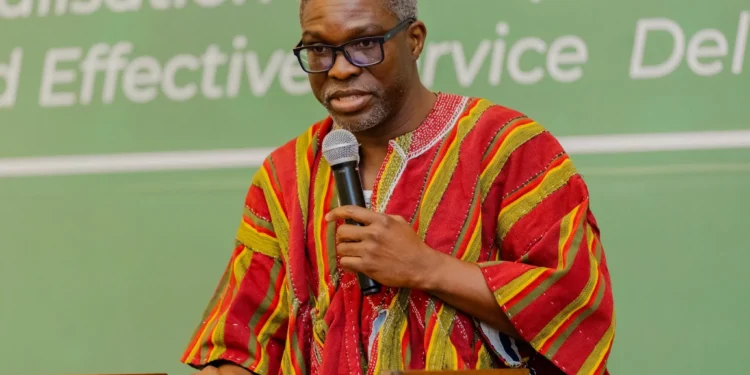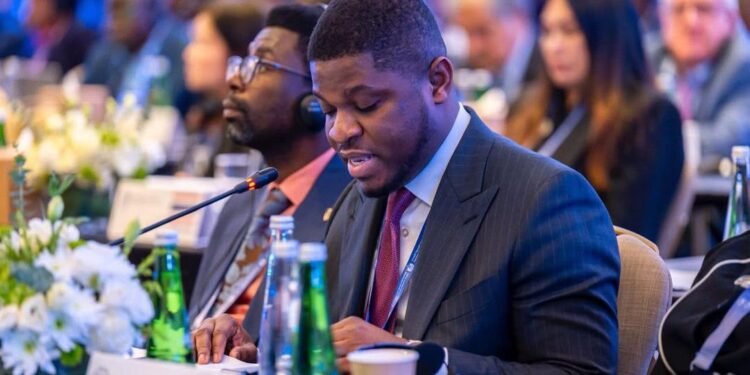Ghana’s journey under the International Monetary Fund (IMF) programme is set to reach another major milestone, as the IMF Executive Board prepares to consider the country’s Fifth Programme Review in the first week of December 2025.
According to sources close to the matter, the meeting date follows a successful staff-level agreement reached with Ghana in October 2025 after an intensive two-week review mission. The upcoming review will determine whether the IMF will approve the release of the next tranche of support — a substantial $380 million disbursement to the Bank of Ghana.
The scheduled meeting in December is designed to allow sufficient time for the final staff report on Ghana’s performance to be completed, following the release of the much-anticipated Audit Report on Arrears, which government officials are expected to publish later this week. The report will undergo scrutiny across several IMF departments before it reaches IMF Management and eventually the Executive Board for final assessment.
High Hopes for Approval Amid Strong Performance
Economists and insiders alike are optimistic that Ghana’s Fifth Programme Review will be approved without major hurdles. Sources close to the IMF say Ghana’s recent performance under the programme has been “remarkably strong,” driven by progress in debt restructuring, fiscal consolidation, and improved public financial management.
If the review is approved, the IMF will release approximately SDR 267.5 million (about $385 million), bringing Ghana’s total support under the current Extended Credit Facility (ECF) to roughly SDR 1.975 billion (about $2.8 billion) since the programme began in May 2023.
This anticipated disbursement will not only provide liquidity support to the central bank but also serve as a powerful signal to international investors and donors about Ghana’s renewed commitment to macroeconomic stability.
Investor Confidence on the Rise
Market watchers have pointed out that the approval of the fifth review will have implications far beyond the immediate financial inflow. It is expected to boost investor confidence, enhance donor support, and stabilize Ghana’s economic outlook heading into 2026.
“The IMF’s endorsement will send a strong signal to the global investment community that Ghana remains committed to fiscal prudence and reform,” said one analyst familiar with the programme.
Government officials have echoed similar sentiments, stressing that Ghana’s commitment to fiscal discipline will remain intact even after the IMF programme concludes in May 2026. To further strengthen this position, officials are reportedly considering subscribing to one of the IMF’s post-programme policy instruments, which would act as a safeguard and a signal of continued fiscal stability.
IMF Commends Ghana’s Fiscal Reforms
At a press briefing in Washington, D.C., IMF Director of Communications Julie Kozack lauded Ghana’s progress under the ongoing programme.
She cited improvements in the country’s fiscal responsibility framework, the establishment of an independent fiscal council, and advancements in public financial management systems. “The Ghanaian authorities are making meaningful progress in building a foundation for fiscal discipline and long-term macroeconomic stability,” Kozack stated.
The IMF’s recent staff report also highlighted Ghana’s efforts in critical sectors such as the energy sector reforms, foreign exchange operations, and financial sector resilience. These reforms, according to the report, are essential pillars in restoring confidence and maintaining economic recovery momentum.
Fiscal Discipline Beyond the Programme
While the IMF’s programme has helped Ghana stabilize inflation, rebuild reserves, and strengthen its exchange rate, concerns remain about maintaining fiscal discipline after the programme ends. However, both the IMF and Ghanaian authorities have downplayed these fears, citing the country’s improved fiscal frameworks and institutional reforms. “The government has demonstrated commitment to prudent spending and transparency. These structural improvements will help sustain discipline beyond 2026,” noted a senior Finance Ministry official.
As Ghana nears the December review, the country’s progress under the IMF programme is widely viewed as a model for post-crisis recovery in sub-Saharan Africa. The anticipated approval of the Fifth Programme Review will mark another key step in Ghana’s gradual transition from economic stabilization to sustainable growth.
With the IMF endorsement likely in December, followed by a $380 million disbursement before mid-December 2025, Ghana stands poised to strengthen its foreign reserves, maintain exchange rate stability, and build investor trust ahead of its planned exit from the IMF programme in 2026.
If all goes as expected, this development could reinforce Ghana’s image as one of Africa’s most resilient reforming economies — one that has not only weathered economic turbulence but also laid the groundwork for enduring fiscal discipline and growth.
READ ALSO: Zenith Bank Ghana at 20: CEO Henry Onwuzurigbo Pledges New Era of Innovation and Excellence























